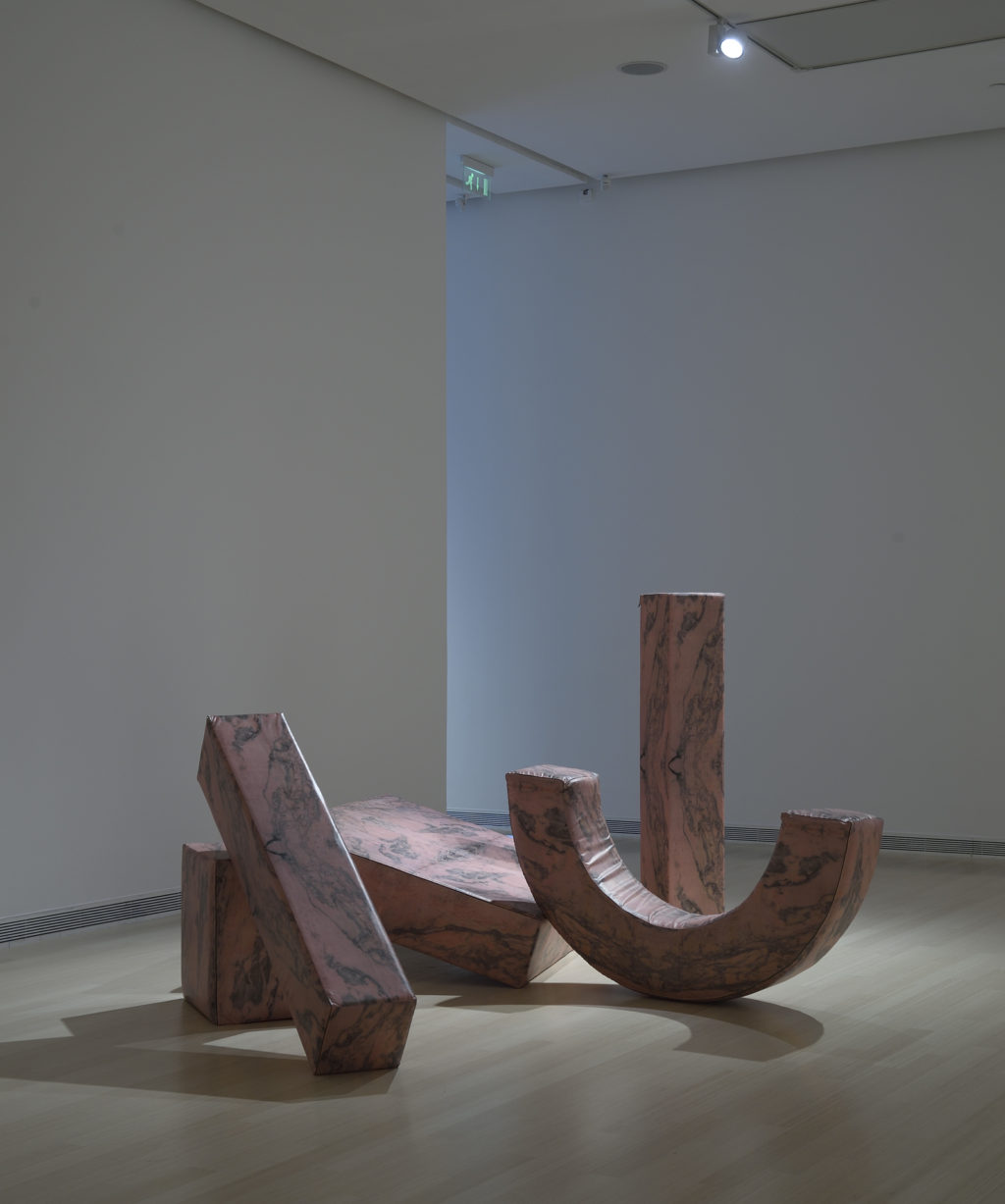Andreas Angelidakis
Spatial Affairs
April 29, 2021–June 27, 2021Ludwig Museum, Budapest
Computer-generated simulations, virtual realities, or digital networked platforms, from cyberspace to metaverse, aren’t fictitious locations of science fiction literature any more. Their importance and role increasingly qualify them comparable to real spaces. Information technology propels the proliferation of immaterial spheres that become legitimate parallel dimensions of our perception, expression, experience, knowledge, communication, and analysis, where real and virtual are no binary opposition any more, for which the three-dimensional notion of space should be revised.
The exhibition Spatial Affairs aims to investigate the relation and interdependence of physical and digital presence via Modern, Conceptual and Contemporary works of art and manifestos. Confrontation with the achievements of science and technology and their social impact though the notion of space unites pre- and post-computational artistic approaches featured in the exhibition. Independent from their medium, they point out the entanglement of the palpably real and intangibly digital.
Exhibited Artists:
Morehshin ALLAHYARI, Andreas ANGELIDAKIS, Carola BONFILI, Adam BROOMBERG & Guy de LANCEY & Brian O’DOHERTY, Petra CORTRIGHT, Agnes DENES, Aleksandra DOMANOVIĆ, Louise DRULHE, Wojciech FANGOR, Stanislav FILKO, Lucio FONTANA, Dora GARCÍA, Sam GHANTOUS, János GULYÁS, Hans HOLLEIN, Lauren HURET, JODI, Hiroshi KAWANO, Katarzyna KOBRO, Alicja KWADE, Oliver LARIC, Sam LAVIGNE & Tega BRAIN, Jan Robert LEEGTE, LOU CANTOR, Stano MASÁR, Cildo MEIRELES, Rosa MENKMAN, METAHAVEN, Imre NAGY, Georg NEES, Robert OLAWUYI, Gyula PAUER, Goran PETERCOL, Sascha POHFLEPP & Alessia NIGRETTI & Matthew LUTZ, Àngels RIBÉ, The RODINA, Rafaël ROZENDAAL, Jeffrey SHAW, Andrej ŠKUFCA, Károly TAMKÓ SIRATÓ, Viktor TIMOFEEV, UNRATED (BESOROLÁS ALATT), Gyula VÁRNAI
Curators: Giulia BINI, Lívia NOLASCO-RÓZSÁS
Assistant Curators: Jan ELANTKOWSKI, Fruzsina FEIGL
Spatial Affairs. Worlding is the online extension of the Spatial Affairs exhibition, designed by The Rodina. In this multi-user environment, figures representing works of net.art and browser-based digital art move around the virtual space mingling with visitors represented by avatars. The online environment was inspired by the theory Konrad Zuse expounded in Calculating Space (Rechnender Raum, 1969), which describes the universe as a space inhabited by living and evolving automata, more precisely, as self-reproducing and self-reprogramming cellular automata. Boundaries between digital objects and active subjects dissolve for good in such a virtual world. The online environment designed for Spatial Affairs. Worlding is one possible answer proposed by The Rodina to the questions posed by the curators: How can the content of an online exhibition by developed into a spatial and adaptive experience? What if artworks are represented by avatars? What if the exhibition becomes an ecosystem and, to use Zuse’s phrase, generates a “computing cosmos”?
The exhibition, both physical and digital, is documented by a catalogue that contains the reproductions of exhibited artworks as well as essays by theoreticians and selected manifestos, supplemented by additional content via Transbooking Augmented Reality.
Spatial Affairs. Worlding is co-produced by ZKM | Center for Art and Media Karlsruhe and EPFL Pavilions, Swiss Federal Institute of Technology Lausanne.
Spatial Affairs is conceived as part of the international cooperation project BEYOND MATTER: Cultural Heritage on the Verge of Virtual Reality (www.beyondmatter.eu), in collaboration with the ZKM | Center for Art and Media Karlsruhe and the Ludwig Museum – Museum of Contemporary Art, with the contribution of the Aalto University. The exhibition is available online: http://spatialaffairs.ludwigmuseum.hu/
Co-funded by the Creative Europe Program of the European Union.

